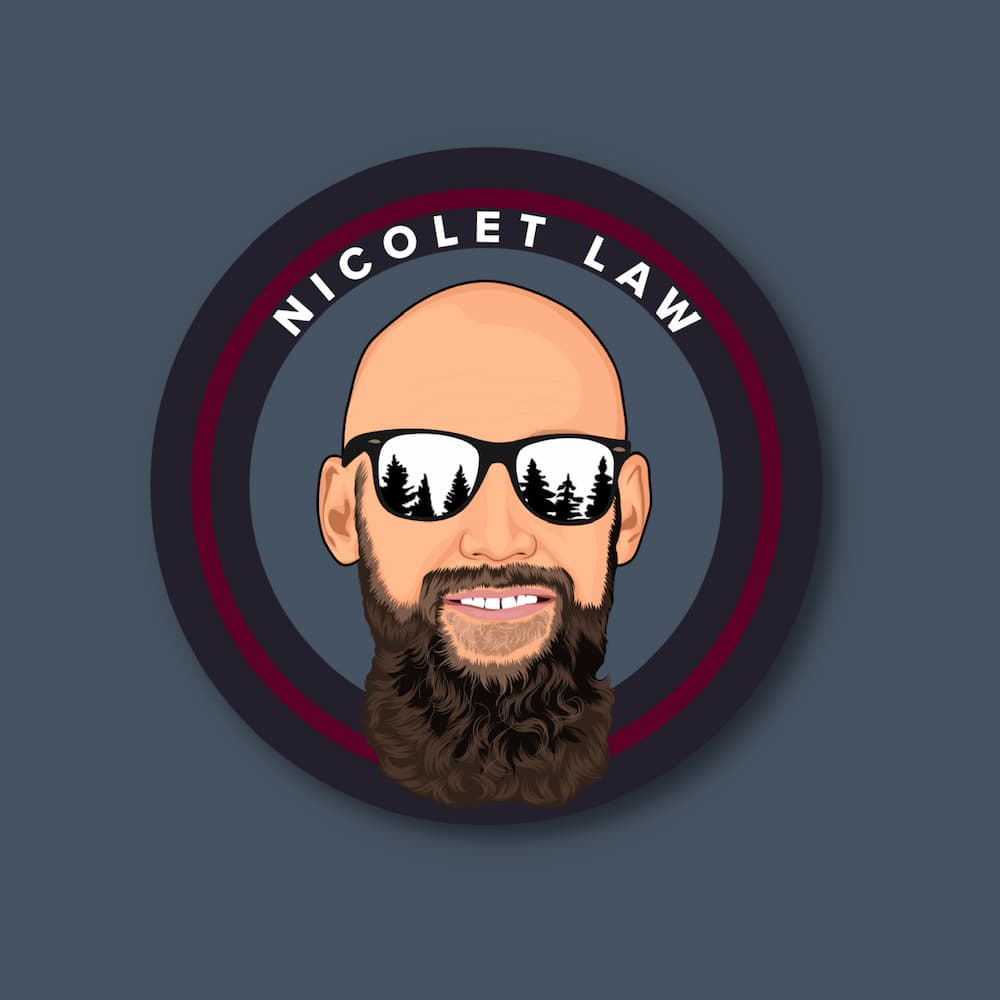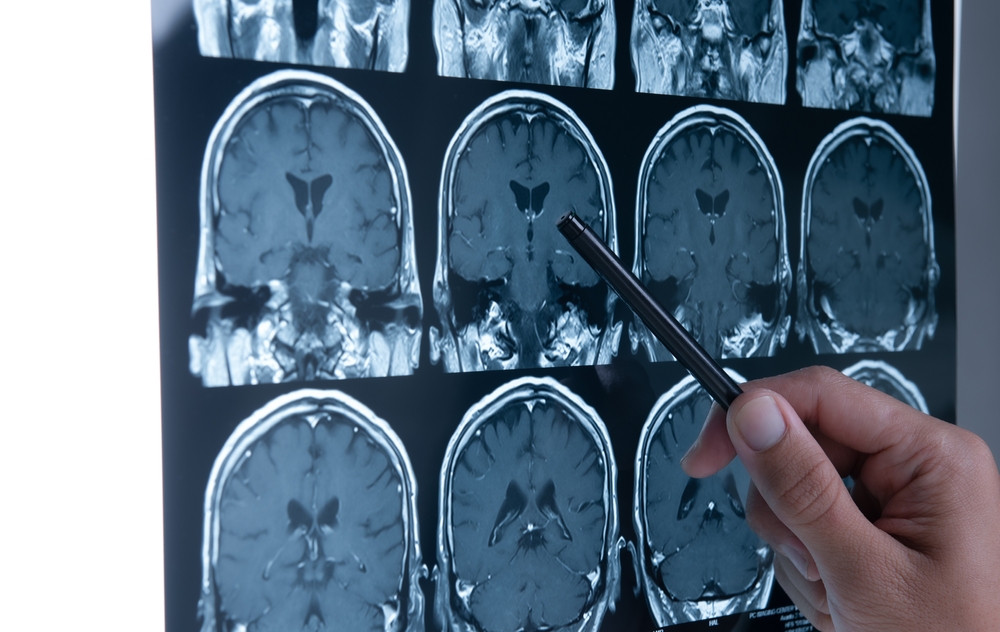Hudson Traumatic Brain Injury Attorneys

If you or a loved one has suffered a traumatic brain injury because of someone else’s careless or reckless actions, we don’t need to tell you how serious these injuries can be. We can tell you, however, that you can seek compensation for the financial and psychological impacts of the injury. An experienced Hudson traumatic brain injury lawyer from Nicolet Law Accident & Injury Lawyers can help you understand this process.
We know how difficult it can be to get back to work or to a new normal life after this kind of injury. We are devoted to using our legal experience and deep understanding of the impacts of TBIs, not only on the injured person but on their family members.
Injured in Hudson? Get Nicolet.
About Traumatic Brain Injuries

In Wisconsin, an estimated 6,000 to 8,000 individuals experience a traumatic brain injury (TBI) every year, although those figures are likely low due to individuals who do not report their injuries or don't go to a hospital.
In the U.S., someone incurs a traumatic brain injury every 23 seconds, with 2.5 million TBIs occurring in the nation annually. More than two percent of the U.S. population is living with disabilities resulting from a TBI.
The brain is one of the most important organs in the body, tasked with controlling all the body’s functions and involuntary responses. Despite its importance, the brain only has a limited ability to heal from injury. A TBI often results in permanent deficits.
The brain contains several sections, called lobes, each responsible for controlling certain body functions. The deficits from a TBI depend not only on the injury's severity, but also on which lobe sustained the damage.
Here is a brief look at the deficits commonly associated with damage to the various lobes:
- Frontal lobe: The frontal lobe of the brain controls a lot of different functions, including emotions, expressive language, attention, concentration, self-monitoring, mental flexibility, and inhibition of behavior. An injury to this part of the brain can result in difficulty controlling emotions, impulses, or behavior, as well as difficulties with communication and memory.
- Temporal lobe: The temporal lobe controls functions such as memory, receptive language, sequencing, hearing, and organization. An injury to this part of the brain will often cause an individual to have difficulty communicating or remembering.
- Occipital lobe: The occipital lobe’s main responsibility is controlling vision. If this part of the brain is injured, the victim may have difficulty seeing or perceiving the size and shape of objects.
- Parietal lobe: The parietal lobe is responsible for the primary senses of sight, sound, taste, smell, and touch. Injuries to this part of the brain may result in difficulties with one or more of these senses.
- Cerebellum: The cerebellum controls balance and coordination, skilled motor activity, and visual perception. An injury to this part of the brain will often result in difficulties with balance and coordinated movement.
- Brain stem: The brain stem controls the body’s involuntary responses, such as heart rate, breathing, consciousness, and sleep-wake cycles. Injuries to the brain stem are commonly fatal, as the body cannot stay alive independent of machines without its involuntary responses.
Falls and motor vehicle accidents are the most common causes of TBI, with other common causes including:
- Intentional violent acts, such as domestic violence, child abuse, or assault.
- Sports injuries from high-impact sports such as football, skiing, or diving.
- Combat and military training, including from explosive blasts.
Common Complications
In addition to permanent deficits, TBIs come with a high risk of complications, both right after the injury and in the months and years that follow.
Some of the more common complications include:
- Seizures, which often occur in the hours after the injury. Sometimes seizures can continue to recur for months or years; a condition known as post-traumatic epilepsy.
- Hydrocephalus, which is a buildup of cerebrospinal fluid on the brain after injury. Doctors may treat it with a surgically placed shunt that drains the excess fluid from the brain. Fluid buildup increases pressure in the brain and can cause further damage if not addressed promptly.
- Altered consciousness from damage to the brain stem, including a coma, a persistent vegetative state, and a minimally conscious state.
- Blood vessel damage. A brain injury doesn’t damage only the brain, but also the vessels that carry blood to and from the brain. This leaves the injured person at higher risk of a blood clot or stroke.
- Infection in the brain, generally caused by bacteria invading an injury where an object has broken and penetrated the skull.
- Post-concussion syndrome, which is a series of recurring problems such as memory loss, chronic headache, vertigo, difficulty sleeping, and memory loss that occur for months or even years after suffering a concussion. Doctors call a concussion a “mild” form of a brain injury. However, there is nothing remotely mild about an injury that can create permanent damage.
- Blood clots, which can occur in the brain because of the injury, or in the deep veins of the legs due to lack of motion following a severe injury. Blood clots occurring in the deep veins of the leg are called deep vein thrombosis, which carries the risk of a potentially fatal complication known as a pulmonary embolism. This occurs when a piece of the clot breaks free and travels through the veins to the lungs.
A Financially and Emotionally Costly Injury
The lifetime costs of medical care for an individual with a brain injury can range from $85,000 to $3 million. In addition to the financial costs, a TBI can affect every facet of the victim’s life, including their ability to work or attend school, the individual's relationships with family members and friends, and their ability to participate in community activities and events.
One striking testimony to the difficulties that this type of injury causes is that studies indicate that more than half of the nation’s homeless population lives with deficits created by a TBI. While the often dangerous conditions that accompany homelessness cause some of these injuries, many of these injuries led to the person becoming homeless in the first place.
This is tragic but not surprising, considering that the unemployment rate for adults with brain injuries exceeds the unemployment rate for adults without brain injuries. Without a strong support network or a fair settlement from whoever caused the accident that led to the TBI, someone suffering from a TBI cannot always manage the costs of their care and daily life.
Frequently Asked Questions About Pursuing Compensation in Hudson for a TBI

Brain injuries are among the most complex injuries a person can suffer. The legal process of obtaining compensation is often complicated and overwhelming as well. Here are answers to some of the questions our Hudson brain injury clients most frequently ask.
What is the process for pursuing compensation for a Hudson TBI?
If you incurred a traumatic brain injury because of someone else’s careless or reckless actions, you can pursue compensation for your injury through a lawsuit. In most cases, Hudson traumatic brain injury claimants must file their cases in court within three years of the accident.
What can I recover through a Hudson traumatic brain injury lawsuit?
Damages refers to compensation for harm. In Wisconsin, you can recover both economic damages, which are compensation for the out-of-pocket expenses related to your injury, as well as non-economic damages, which for the impacts your injury has had on your quality of life.
Wisconsin allows you to seek compensation for the damages you experienced because of your injury.
Some examples of recoverable damages are:
- Medical expenses.
- Lost wages.
- Loss of future earning capacity, if your injury prevents you from working or earning the same pay as before the accident.
- Property damage, such as the cost of repairing or replacing your vehicle if your injury occurred in a motor vehicle accident.
- Physical pain and suffering.
- Emotional distress.
- Loss of enjoyment of life.
In some cases, punitive damages may also be available. Punitive damages are awarded not for the expenses and impacts of the injury, but rather as a way to punish the defendant for particularly reckless behavior.
My brain injury occurred at work. Can I sue my employer?
Workers’ compensation, an insurance policy that most employers in the state must purchase for their employees, covers most job-related injuries. Workers’ compensation replaces a portion of the wages you lose while you are recovering from your injury, permanent wage replacement if you are permanently disabled, and coverage for accident-related medical expenses.
In most cases, if workers’ compensation covers you, you cannot also file a personal injury claim against your employer.
However, some workplace accidents do justify a personal injury lawsuit. These include:
- When an employer is legally required to purchase workers’ compensation insurance, but did not have a valid policy in place when a worker was injured.
- Workplace accidents caused by a third party, which is someone who is not your coworker or your employer. For example, a delivery driver who is injured by another driver on the roadway during the normal scope of their employment can generally sue that other driver for compensation.
How can a Hudson traumatic brain injury lawyer help me with my case?
Many individuals are reluctant to hire an attorney to help them pursue compensation after an accident because they are afraid they can’t afford one. The experienced TBI attorneys at Nicolet Law Accident & Injury Lawyers understand how crucial it is for injured people to obtain legal assistance after an accident. Because of this, we offer two client-friendly services to ensure that anyone who needs our help can get it, regardless of their financial status.
These services are:
- A free case evaluation, when a potential client can meet with an attorney to ask questions, learn more about the firm, and obtain guidance about their options for pursuing compensation.
- A contingent-fee payment plan. This means if we sign a representation agreement with someone, they do not pay for our services unless we successfully resolve their case.
We can provide these services for our clients, depending on the case:

- Identifying all potentially liable parties and insurance resources our client may access to compensate them for their injury.
- Providing a damages estimate based on the financial and quality-of-life impacts they have already suffered as well as those they are likely to incur.
- Negotiating with the at-fault party’s insurance provider to obtain a fair settlement offer on our client’s behalf.
- Collecting and organizing evidence and witness testimony to prove our client’s case.
- Providing guidance about the pros and cons of accepting settlement offers.
- Litigating our client’s case in court, if the other party refuses to come to a reasonable settlement agreement.
- Filing court-required paperwork and attending all pre-trial conferences and hearings in our client’s case.
- Assistance collecting any final settlement or award.
Let our experienced attorneys help you make sense of the legal process and understand whether you can seek compensation from another party for your TBI. Contact our Hudson traumatic brain injury lawyer online or by calling (715) 377-2141.
Injured? Get Nicolet.
Nicolet Law Accident & Injury Lawyers
Address: 517 2nd St Unit #205,Hudson, WI 54016
Phone: 1-855-642-6538